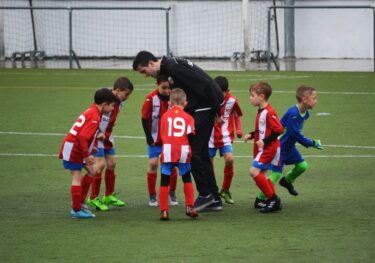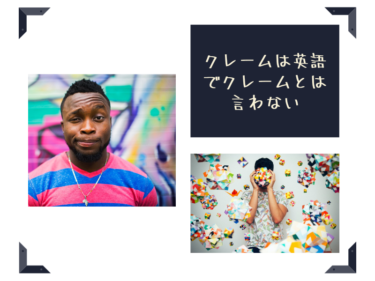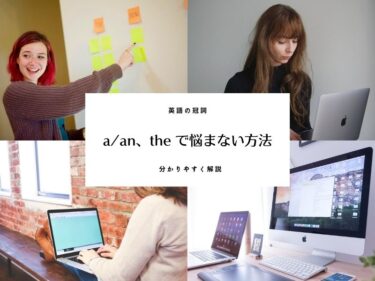「仮定法」とは、想像や仮定を表現するために使われる文法的な表現方法のことです。英語の仮定法には、条件法(If文)、仮定法過去、仮定法現在、仮定法未来があります。
例えば、「もし雨が降ったら、家にいるつもりです」という文は、条件法を用いていることが分かります。また、「もし私が彼女だったら、彼を許すことができるかもしれない」という文は、仮定法過去を用いています。
仮定法を使うことで、自分の考えや想像を相手に伝えることができます。また、ビジネスや学術などで重要な役割を果たすため、仮定法をマスターすることは英語力アップにつながります。
さあ、日常会話やビジネスシーンで活用できる仮定法を学び、英語力を向上させましょう!
WIZWORDs(ウィズワード)では仮定法への理解を深めるために、「場面」を設定した英語学習を推奨しています。そして、英語は「場面」をイメージしていくことで、楽しく学ぶことができ、さらに記憶へと定着していきます。
それでは早速、英語の仮定法を学習していきましょう。
インプットしたらアウトプットすることで英語力UP

英語力をUPさせたいなら、その学習法は一にも二にも、
本当にたったこれだけで英語力は向上します。
英語を読んだり、聞いたりしたら、その読んだり聞いたりした言葉を必ず口に出したり、書いたりすることです。
そうすれば、自分の記憶への定着率が上がり、英語上達への近道となり、自然と英語力が向上していくからです。
私たちはなぜ言葉を覚えることができたかというと、赤ちゃんのときに親から話す言葉をただただ聞き取っていただけではなく、親としっかりとコミュニケーション(インプット&アウトプット)をしていたから言葉を覚えることができたのです。
なので、英語学習においてインプットからアウトプットはとても重要な学習プロセスなのです。
さらに、WIZWORDsでは、その場所やその場所での会話などの「場面」をイメージしながら英語を学ぶことでさらなる記憶への定着率を上げる「場面で英語」というものを推奨しています。
それでは、仮定法を「場面」をイメージしながら英語学習をしていくことで、記憶への定着率をはかり、英語力の向上を目指していきましょう。
Comprehension of Subjunctive Mood 仮定法への理解

In a nutshell, the subjunctive mood is an expression that depicts a virtual “dream world” that is not a reality. 仮定法とは、一言で言えば「現実のことではない、仮想の『夢の世界』を描く表現です。
The English tense has the present, the past, and the great past (past of the past). The present is the present tense, the past is the past tense, and the great past is the past perfect tense. These are expressions of direct method that tell something true. 英語の時制には現在・過去・大過去(過去の過去)があり、現在のことには現在形、過去のことには過去形、大過去のことには過去完了形が用いられます。これらはあることを事実として伝える直接法の表現です。
| Present tense 現在形 | Past tense 過去形 | Past perfect tense 過去完了形 |
| She lives in Tokyo. 彼女は東京に住んでいる。 | She lived in Tokyo 5 years ago. 彼女は5年前に東京に住んでいた。 | She had lived in Tokyo for 5 years. 彼女は5年間東京に住んでいた。 |
On the other hand, the subjunctive mood is an expression that draws a “dream world” that is different from reality, such as “If I were you…” or “If I had succeeded at that time…” To show that it is not the real world, shift the tense one by one in the past. “The present is expressed in the past tense, and the past is expressed in the past perfect tense. これに対して、仮定法は「僕が君なら」「あの時成功していたら」などと現実とは異なる「夢の世界」を描く表現です。現実の世界のことではないことを表すため、時制を1つずつ過去にずらし、現在のことは過去形、過去のことは過去完了形で表現します。
Present (Subjunctive Past) 現在(仮定法過去)
Past (Subjunctive past perfect) 過去(仮定法過去完了)
For example, 例えば、
↑Actually, I don’t have money so I can’t buy it. 実際はお金を持っていないので買えない。
↑Actually, I didn’t have money so I couldn’t buy it. 実際はお金を持っていなかったので買えなかった。
↑Actually, I can’t speak French. 実際はフランス語が話せない。(仮定法過去)
↑Actually, I couldn’t speak French at that time. 実際はフランス語が話せなった。(仮定法過去完了)
↑Actually, there isn’t fine today so we can’t play it. 実際は晴れていないのでしない。
↑Actually, there wasn’t fine yesterday so we couldn’t play it. 実際は昨日晴れていなかったのでしなかった。
How to use “If” & “I wish” 「If」&「I wish」の使い方
The subjunctive past is used to make assumptions and wishes that go against the present facts. Often seen in the “If” sentence and after the “I wish”. 仮定法過去は現在の事実に反することを仮定したり、願望を述べたりするときに用いられます。「If」の文の中と「I wish」の後によく見られます。
Subjunctive past using “If” 「If」を使った仮定法過去
| (If + S + Past V ~, S’ + Past auxiliary verb (would / could / might + V …) “If (Present) S + Past V ~, would / could / might + V …”(If + S + V過去形~, S’ + 助動詞の過去形(would / could / might + V原型 …) 「もし(現在)~なら、~だろう」 |
The subjunctive past is an expression that assumes that it is against the present facts. It is important to note that even the subjunctive about the present is expressed in the past tense, because the subjunctive is not a real thing but a way of expressing the “dream world.” Also, in the subjunctive past, the be-verb generally uses “were” regardless of the person or number of the subject. 仮定法過去は現在の事実に反することを仮定する表現です。仮定法は現実のことではなく、「夢の世界」を述べる表現方法であるから、現在についての仮定であっても過去形で表わすことに注意が必要です。また、仮定法過去のbe動詞は主語の人称・数に関わらず「were」を用いるのが一般的です。
|
If Andy were here, he could help us clean our room. もしアンディがここにいたら、私たちの部屋の掃除を手伝ってくれるのに。
|
In addition, the situation of the real world is described as follows by using the sentence of this subjunctive using the indicative mood. Can you feel the nuances of the present “dream world” expressed in the past tense? なお、この仮定法の文を直接法を用いて現実の世界の状況を述べると、以下のようになります。過去形で表わされた現在の「夢の世界」のニュアンスを感じ取れるでしょうか?
|
Since Andy is not here, he cannot help us clean our room. アンディはここにいないので、彼は私たちの部屋の掃除を手伝えない。
|
【場面で英語】
|
Rare cards are on sale at that hobby store. レアカードがあそこのホビーショップで安売りだって。 If I had 5,000 yen, I could buy one of them. もし5000円持っていたら、それらの一枚が買えるのに。 |
|
Bob seems to be depressed after talking with me. ボブは私と話した後、落ち込んでしまったみたい。 If I were you, I wouldn’t tell him such a thing. もし私があなたなら、彼にそんなことは言わないわ。 |
|
How’s your studying Japanese? 日本語の勉強はどうですか? If I had enough time, I would study Japanese. もし充分な時間があったら、日本語を勉強するのになぁ。 |
Subjunctive past using “I wish” 「I wish」を使った仮定法過去
| (I wish + S + Past V~) “I wish S’ + Past verb~”(I wish + S + 過去形~)「~であればいいのに、~ならなぁ」 |
It is an expression that expresses a desire that is different from the current fact, such as “I wish I were …” 「~であればよいのに」と、現在の事実と異なる願望を述べる表現です。
|
I wish I could go with you. 君と一緒にいければなぁ。 = I’m sorry I can’t go with you. (現実には一緒にいけない)
|
【場面で英語】
|
What? Do you walk from your home for three hours to work? え?自宅から3時間かけて歩いて仕事場まで通っているの? I wish I had a car. 車を持っていたらなぁ。 |
|
Can you get me a hat stuck on that tree branch? あの木の枝に引っかかっている帽子を取ってくれませんか? I wish I were taller. もし私が背が高かったらなぁ。 |
|
I become a billionaire today. 今日、億万長者になるよ(笑) You wish it was true. 本当ならいいのに。 |
“would like to” is also the subjunctive 「would like to」も仮定法
The polite expression of “want to do” is “would like to do”, and the polite expression of “Will you ~?” Is “Would you ~?”, But the would used here is also the subjunctive. By expressing the present in the past rather than in the present tense, the expression becomes “distanced” and the feeling of bumptiousness disappears. 「want to do」の丁寧な表現は「would like to do」、「Will you ~?」の丁寧な表現は「Would you ~?」であるが、ここで用いられているwouldも仮定法です。現在のことを現在形でなく過去形で表現することにより、「距離をおいた」表現になり、押しつけがましい感じがなくなります。
【場面で英語】
|
I would you like to make a phone call my boss right now. たった今、私の上司に電話してほしいの。 No problem. What should I say to him? いいよ。彼に何て言ったらいいの? |
|
Would you like to go to drink with me after work? 仕事のあと、飲みに行きませんか? Sorry, I can’t go because I have lots of things to do. ごめんなさい、たくさんやることがあるためいけないの。 |
場面をイメージする

If you understand the Can, May & Must, read the English conversation aloud. Can, May & Mustが理解できたら、声に出して会話文を読んでみましょう。
If you can input, output it to improve the learning effect. インプットできたら、アウトプットして学習効果を高めましょう。
「If」を使った場面で英語
【場面で英語】
いい仕事のオファーをもらったAがBにそれについて尋ねるシチュエーションです。
Scene in the office オフィスでの場面
| If I were you, I would take the job. 私があなたなら、その仕事を引き受けます。 |
|
Hey, Meg. Could you give me some advice? ねえ、メグ。 アドバイスをいただけますか? Sure. What about? いいよ。何について? Well, I’ve offered a great job, but I love working at my present company. えっと、素晴らしい仕事を提供してもらったんだけど、今の会社で働くのが大好きなんです。 Hmmm, if I were you, I would take the job. I mean, you’ll soon make friends and enjoy working there too. ふ~む、私があなたなら、その仕事を引き受けます。 つまり、あなたもすぐに友達を作り、そこで働くことを楽しむでしょう。 I guess so. Thanks a lot. そうだね。ありがとう。 |
希望の仕事に就けなかったAを励ますBとの会話シチュエーションです。
Scene at cafe カフェでの場面
| If you had asked me, I would have given you advice. もしあなたが私に尋ねていたら、私はあなたにアドバイスをしたのに。 |
|
I didn’t get the job I applied for. 応募した仕事に就けなかったんだよ。 Sorry to hear that. What went wrong? それは残念だね。何がいけなかったの? Well, I gave a very bad interview. 面接が良くなかったんだよね。 You know interviewing is my specialty. If you had asked me, I would have given you advice. 面接は私の専門よ。 もしあなたが私に尋ねていたら、私はあなたにアドバイスをしたのに。 I’ll definitely ask you next time. 次回必ずお願いします。 |
「I wish」を使った場面で英語
【場面で英語】
元気のないAに声をかけるBの恋愛シチュエーションです。
Scene at school 学校での場面
| I wish I had a girlfriend. 彼女がいたらいいのに。 |
|
Hey, what’s up Mark? You look down. ヘイ、どうしたんのマーク?落ち込んでるね。 No, I’m OK. I wish I had a girlfriend, that’s all. いや、OKだよ。彼女がいたらいいのに、それだけ。 What? I thought a handsome guy like you would have lots of girls wanting to be your girlfriend. 何?あなたのようなハンサムな男は、あなたの彼女になりたい女の子がたくさんいると思っていたよ。 I wish! そうだったらいいな! Er… how about me? あぁ、私はどう? |
歩くのが辛そうなAと会話をするBのシチュエーションです。
Scene in the office オフィスでの場面
| I wish I was 20 years younger. 20歳は若かったらいいのに。 |
|
Why are you limping? なぜあなたは足を引きずっているの? I played tennis for three hours yesterday, and now I can hardly walk! 昨日は3時間テニスをしたので、今はほとんど歩けません! Three hours?! That sounds a bit too much. 3時間?!それは少しやり過ぎだね。 Yeah, I wish I was 20 years younger. そうだね、20歳は若かったらいいのに。 Come on. You’re in good shape for your age. 冗談でしょ。年齢の割にはイケてますよ。 |
「would like to」を使った場面で英語
【場面で英語】
ワインバーでのAとBのやり取りのシチュエーションです。
Scene at wine bar ワインバーでの場面
| I would like to have a glass of red wine. 赤ワインを一杯飲みたいです。 |
|
What would you like to drink? 飲み物は何を飲まれますか? I would like to have a glass of red wine, please. 赤のグラスワインを頂けます。 Certainly, would you like to see our wine list or do you have a preference? もちろん、私たちのワインリストをご覧になりますか、それともお好きなものはございますか? I don’t know much about wine, so could you give me your best recommendation? ワインは詳しくないので、あなたの一番のおススメを頂けますか? Then, I recommend this delicious red wine. それではこちらの口当たりの良い赤ワインをお勧めします。 |
新しいレストランについてAとBの会話シチュエーションです。
Scene in the office オフィスでの場面
| Would you like to try this new restaurant with me? 私と一緒にこの新しいレストランを試してみませんか? |
|
Would you like to try this new restaurant with me? 私と一緒にこの新しいレストランを試してみませんか? I’m not sure, what type of food do they serve? よく分からないけど、彼らはどんな種類の食べ物を提供していますか? They specialize in Italian cuisine. 彼らはイタリア料理を専門としています。 Oh, in that case, I would love to try it! When do you want to go? ああ、それならぜひ試してみたい! いつ行きたいですか? How about after work this Friday? 今週の金曜、仕事が終わったあとではどうですか? |
まとめ
「仮定法」は、英語でよく使われる文法の一つであり、ある条件下での仮定や、未来の可能性や願望を表現するために用いられます。
この文法をマスターすることで、より正確かつ自然な英語表現をすることができ、英語力の向上につながります。
仮定法には、現在形・過去形の条件文、現在形・過去形の仮定法、そして「wish」を用いた仮定法があります。
これらの文法を理解し、実際の会話や文章作成に活用することで、より高度な英語力を身につけることができます。
英語の助動詞は “will” “shall” “can” “may” “must” などがあり、これらは動詞に推量、可能などの意味を加える働きをし、英語を学ぶ上でとても重要なパートとなります。 この助動詞学習では基本的な助動詞の用法を[…]









